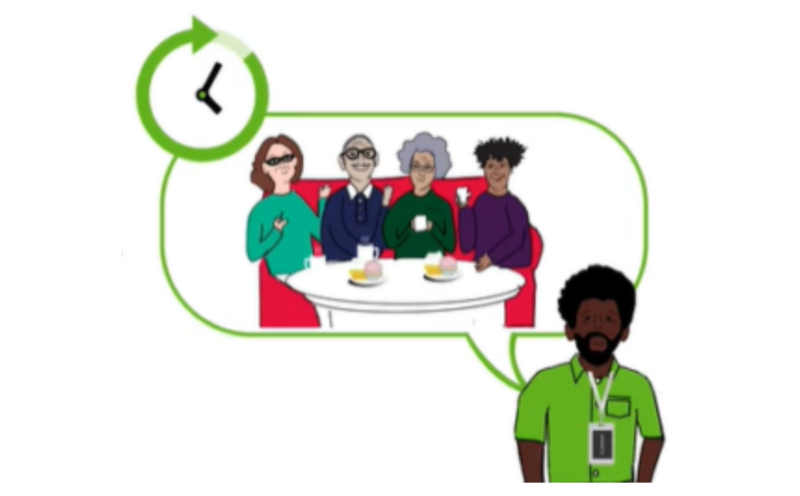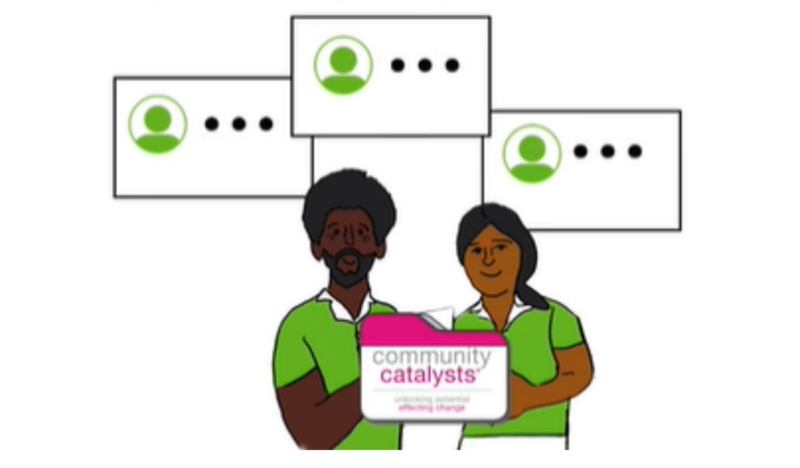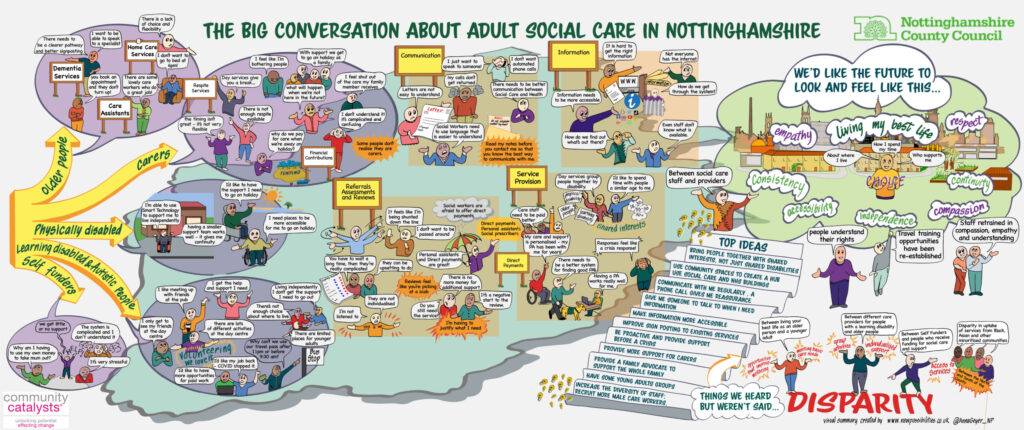Helping organisations engage and consult with large numbers of people from different stakeholder groups and competing perspectives to coproduce action plans for change.
An approach developed by Community Catalysts in response to requests, primarily from public sector organisations, for us to help them engage, consult and coproduce action plans for change. The approach is flexible and adaptable and can be used to talk about and act upon any issue that needs addressing.
The approach takes account of the wonderfully messy nature of communities. It makes it possible to engage and work with large numbers of people from different stakeholder groups with potentially competing perspectives.
Suggested and invented for Shropshire, and then activity used in London Borough of Merton, Bolton and more recently in Nottinghamshire.
“It is critical to understand and work on people’s strengths and to look at what is possible”.
Excerpt from Merton report
A multistage approach, taking 3 to 6 months, to:

Community Catalysts worked in partnership with Nottinghamshire County Council, the coproduction group Our Voice and local people and communities to have a Big Conversation about social care. The work was supported by Social Care Future and recorded by New Possibilities.
From 20 February to 22 March 2023, Community Catalysts, together with Our Voice, supported Nottinghamshire to have a ‘Big Conversation’ to ask people who use social care and their carers about the vision, the challenges, and what they want in the future.
A webpage was set up to share information. An accessible video was produced to tell people about the Big Conversation and invite them to contribute:

People were invited to come along to one of 7 listening events, supported by senior council managers and elected members. People who were unable to attend events were asked to invite Community Catalysts to meet with their group, talk on the phone or complete one of two online surveys – one for people with experience of social care and the other for family carers.
Impact in Nottinghamshire
Together we ran 8 community events, held 11 meetings and developed 2 online surveys for people who couldn’t engage in person. We asked people who use social care and their carers about the vision, the challenges, and what they want in the future.
We heard from 542 people; this included 277 unpaid carers and 265 people who draw on social care. People shared their experiences and ideas, their thanks and discontent, their hopes and dreams for the future.
“Bring people together with shared interests, not just shared disabilities and use community spaces to create a hub.”
People were open and honest and trusted the process might help towards a better social care future. Despite many positives, it can’t always have been an easy listen for the council, but listen they did – and for that we applaud them.
“I receive direct payments to pay a PA and several self-employed carers. This is great and gives me flexibility, however, when it comes to paperwork, audits, assessments, employment rights… I have to rely on a family member to manage this for me as it can be very confusing and time consuming.”
The Big Conversation is part of a longer process and everything that people shared was used by Community Catalysts to write a detailed report which aggregates and amplifies what people have to say. The report is then being used by Nottinghamshire County Council to help write the Strategy and develop future plans.

Above: Nottinghamshire Big Conversation graphic by Anna Geyer, New Possibilities
We’ve previously held Big Conversations about daytime support, and in Nottinghamshire the focus was on social care, but our approach would work for any public sector organisation wanting to engage and consult with a wide range of diverse people on a specific issue with the aim of taking action based on the results.